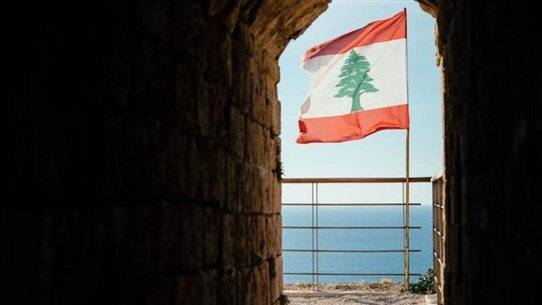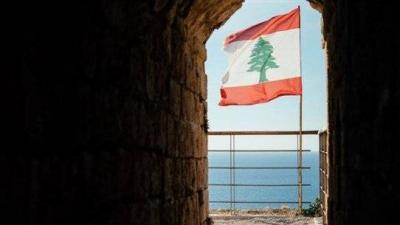The eighth summit of the Mediterranean countries within the European Union (Euromed) will convene tomorrow (Friday) in Alicante, Spain, located on the Mediterranean coast, amidst exceptional challenges, most notably the Russian war on Ukraine, which has entered its eighth month, along with its geopolitical, military, and economic repercussions on the group and Europe in general.
The group, which was launched by a Spanish-Cypriot initiative in 2013, consists of nine countries, including Spain and Cyprus, France, Italy, Greece, Malta, Portugal, and last year Croatia and Slovenia joined. The group represents 203 million people, with a gross domestic product of 7,140 billion euros. The purpose of establishing the group, united by the Greek-Roman cultural heritage (unlike the northern and eastern European countries), is to amplify the voice of the south within the European Union, provide a platform to promote its interests, advocate for its viewpoints, and coordinate among its components.
The summit in Alicante is expected to be attended by the President of the European Council, Charles Michel, and the President of the European Commission, Ursula von der Leyen. Yesterday, French presidential sources presented an overview of the main issues that will be discussed by the heads of state and government from the "nine." It appears that the energy crisis, which began with the onset of the Russian war on Ukraine, will be a central topic for the discussions of the nine leaders, dedicating the first session to it, with the presence of Michel and von der Leyen.
According to presidential sources, this sensitive issue, which has re-emerged with the increasing accusations following the leakage of Russian gas from the "Nord Stream 1" and "Nord Stream 2" pipelines in the Baltic Sea, will be approached from the perspective of how to achieve "European sovereignty" in ensuring energy security. In parallel, the meeting will also consider how to establish a cap on gas prices at the European level, as well as separating gas prices from electricity prices, which have both seen significant increases in recent months.
Mediterranean and non-Mediterranean European countries are struggling to find alternatives to Russian gas, prompting them to seek ways to reduce consumption. Yesterday, 15 European countries, including all nine countries of the "Euromed" group, except Cyprus, signed a letter to the EU Energy Commissioner Kadri Simson, urging an immediate proposal for a cap on gas prices, regardless of the source—whether Russian, American, or any other source—and for it to be implemented within and among EU states. The signatories believe that such a measure could halt the rise in gas prices, which would subsequently freeze electricity prices and curb inflation, which has reached levels not seen in Europe for 40 years.
Additionally, nuclear threats and the implications of the referendum conducted by Russia in four Ukrainian regions, with the expectation of their annexation to Russia, will be on the agenda for discussions among the "nine." Elysee sources indicated that a statement or announcement will be issued by the attendees outlining their position on the discussed issues. Europeans, collectively, consider the Russian referendums "illegal" and their results "fraudulent." However, the war in Ukraine and the energy crisis are not the only challenges amidst which the summit of the "nine" convenes; the recent escalation between Turkey and Greece will also be a focal point, especially since the Presidents of Cyprus and Greece will be present at the summit. Despite the general European stance supporting Athens (and also Nicosia), the Greek President recently declared that any Turkish aggression against Greece would not face Greece alone but all of Europe.
French presidential sources noted that the nine leaders might address this issue during their collective dinner on Friday-Saturday, and their overall approach calls for "respect for international law and the territorial integrity of states, and a unified and firm demand for Turkey to halt its intimidation operations" against Greece.
Regional files will be central to the evening talks among European leaders, addressing a wide array of topics related to the "European neighborhood," particularly the southern aspect, including the issue of illegal migrations, which continues to flow toward European shores, as well as the complex relationship between Morocco and Algeria and its impact on Algerian gas supplies to Spain and Europe in general.
One of the topics that will be raised is the situation in Lebanon. In this regard, a presidential source stated that participants will "reaffirm the necessity for presidential elections to avoid a presidential vacuum," considering its implications for Lebanon, in addition to "emphasizing the need to undertake necessary reforms awaited by the Lebanese people, the international community, and financial institutions like the IMF, as Lebanon needs the world's trust." While the presidential sources did not provide a systematic overview of the regional issues that will be raised, they did sketch a general direction for the leaders calling for political and economic stability in the Mediterranean neighborhood.
Regarding Tunisia specifically, presidential sources said Tunisia is a "French and European priority," currently undergoing a democratic and institutional transition, while also suffering from a structural economic crisis exacerbated by the Ukrainian war. While seemingly conciliatory towards Tunisian President Kais Saied, the sources stated that Europeans "support and accompany" Tunisian authorities in their efforts to implement reforms to help mobilize EU and international support for them.
It is noteworthy that the summit on Friday occurs at a time when Italy is experiencing radical political changes expected to impact the European Union, with the victory of the far-right coalition, led by Giorgia Meloni, the head of the "Brothers of Italy" party, allied with the anti-European "League" led by Matteo Salvini, and Silvio Berlusconi, leader of the "Forza Italia" party.
Europeans have been questioning, even before the results were announced, the "repercussions" of a far-right government that is not enthusiastic about the European project and could ally with the two "troublemakers"—Hungarian Prime Minister Viktor Orbán and Slovak Prime Minister Eduard Heger.




